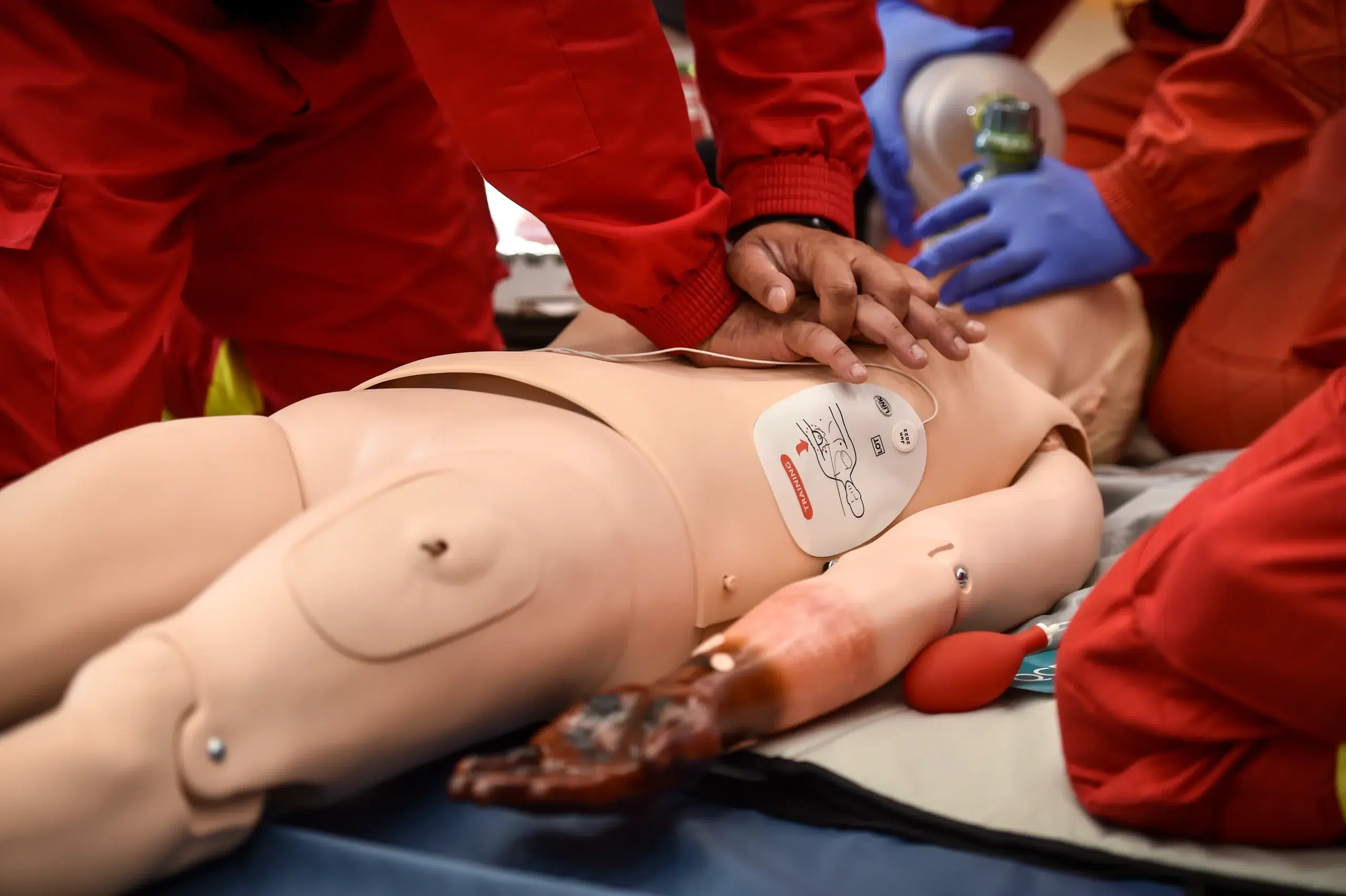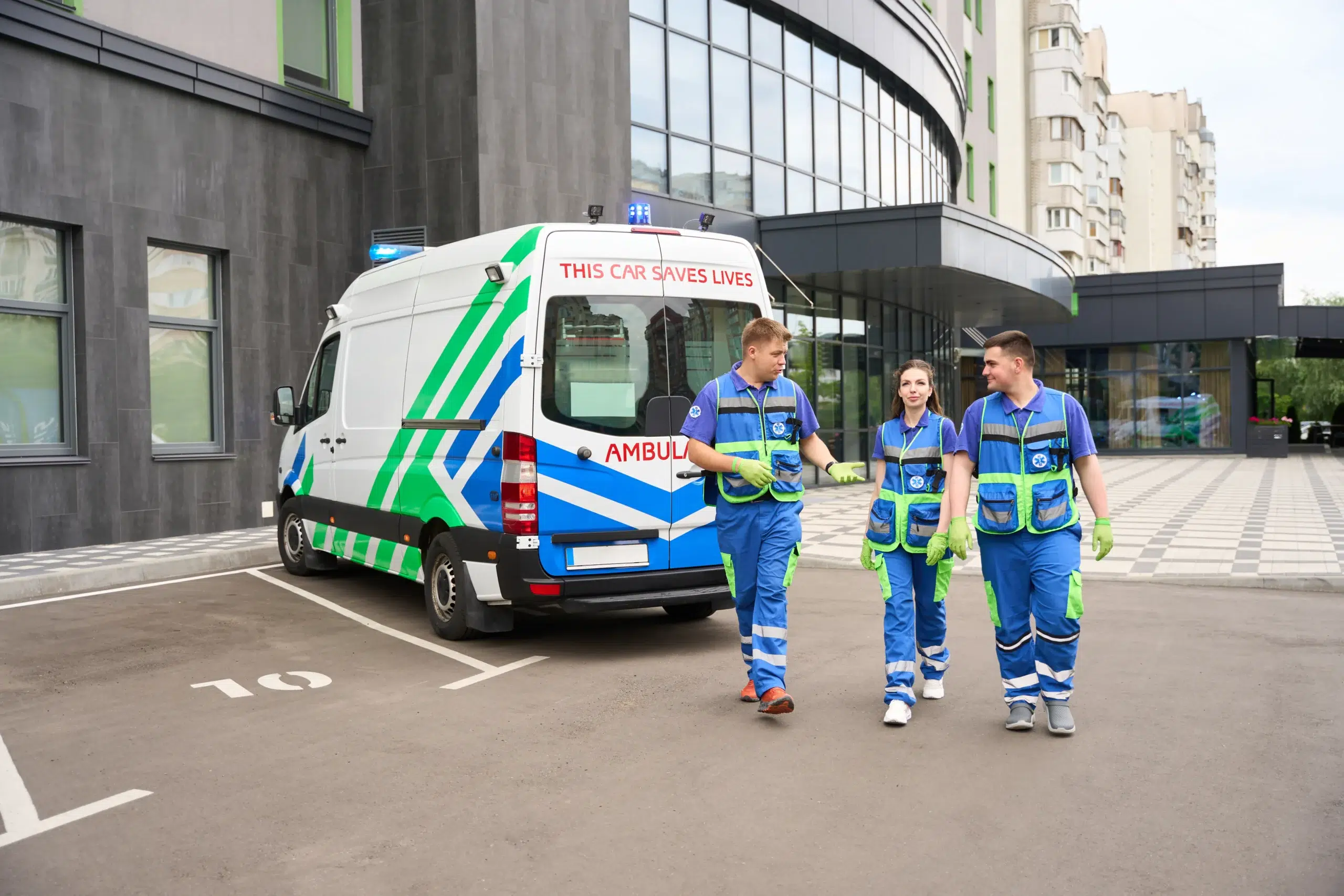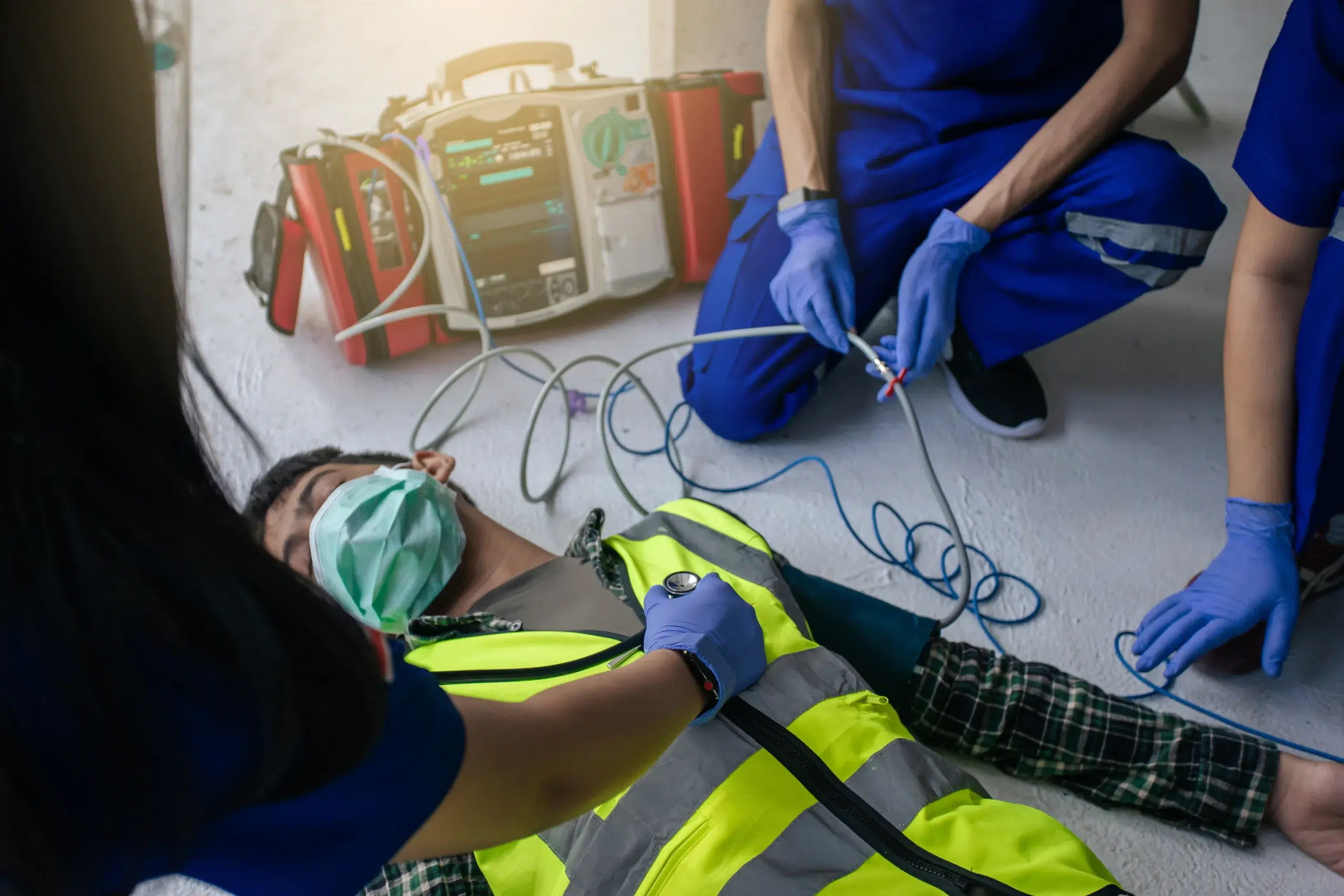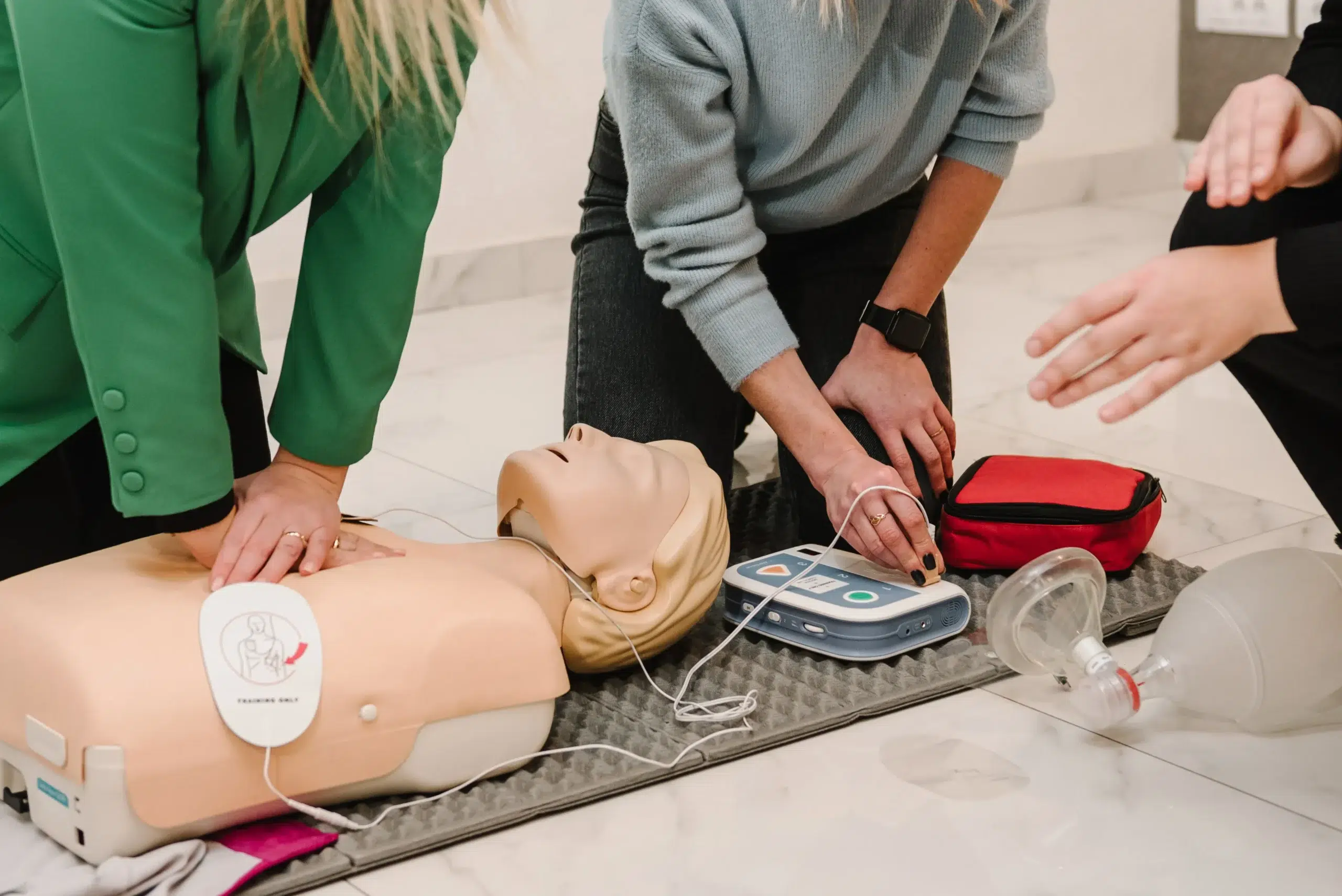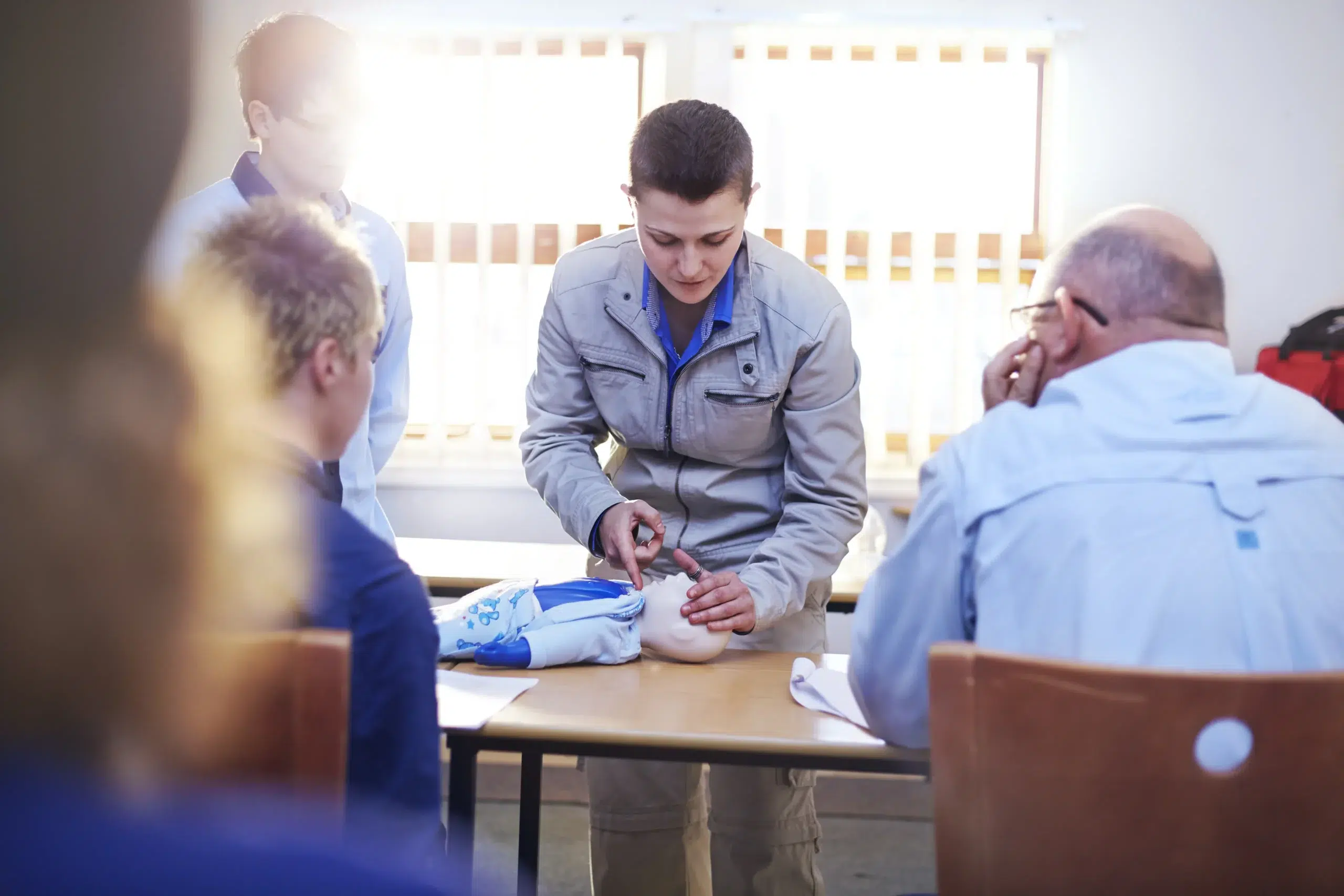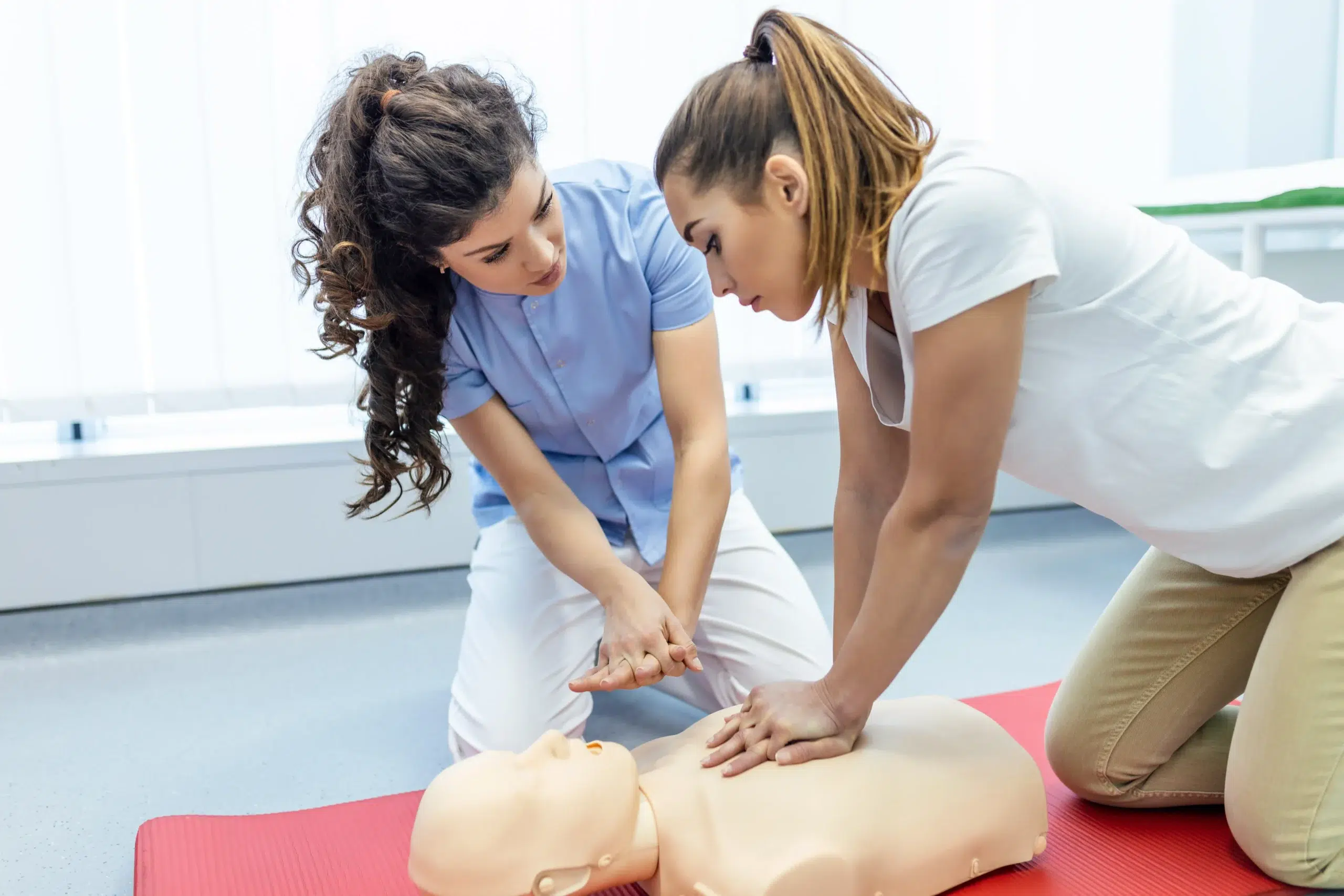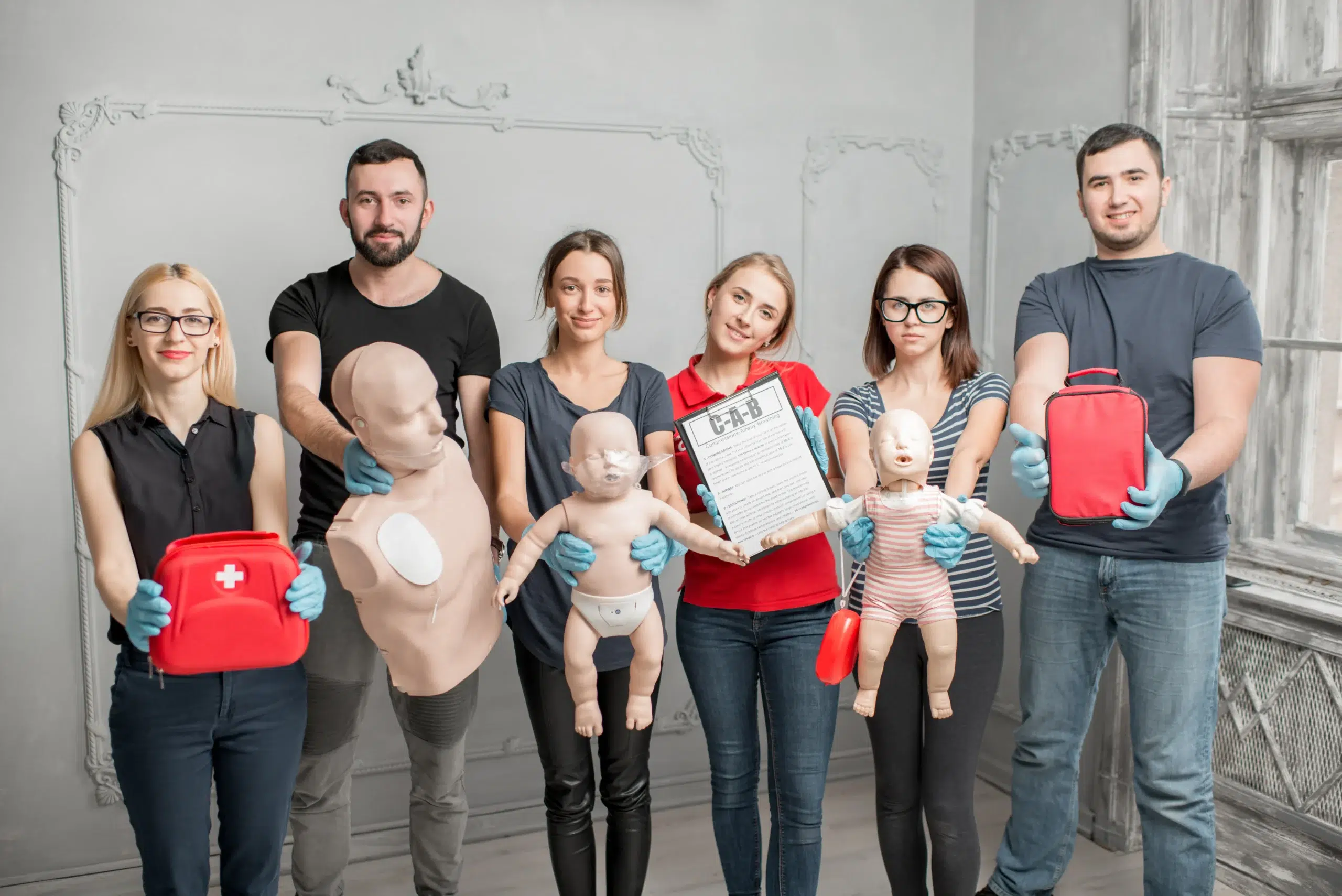Emergencies happen, and knowing first-aid can transform you from a bystander into a first responder. This guide explores the world of first-aid in Walnut Creek, offering a comprehensive look at available training options. We’ll cover various certifications, including CPR, BLS, and specialized courses like ACLS and PALS. Whether you’re a medical professional needing recertification or someone wanting to learn essential life skills, we’ll help you find the right course. We’ll also discuss costs, instructor qualifications, and how to choose a class that fits your schedule and goals. If you’re ready to empower yourself with life-saving skills, keep reading to discover the benefits of first-aid in Walnut Creek.
Key Takeaways
- First-aid training equips you for emergencies: Whether it’s a minor cut or a serious medical event, these skills allow you to respond effectively and potentially save lives. Choose a course that aligns with your experience level and goals.
- Pleasant Hill CPR Classes offers comprehensive training and flexible options: From basic CPR to advanced life support, they provide various courses, including convenient weekday, weekend, and evening schedules. Their specialized RQI program streamlines recertification for healthcare professionals.
- First-aid certification benefits everyone: It builds personal confidence, promotes safer workplaces, and creates more resilient communities. Explore the numerous training resources in Walnut Creek to find the right program for you.
What is First-Aid Training in Walnut Creek?
First-aid training gives you the skills to handle medical emergencies until professional help arrives. It empowers you to respond effectively to a range of situations, from minor injuries like cuts and burns to more serious events like choking or sudden cardiac arrest. These courses teach essential life-saving techniques, including CPR and how to use an AED.
In Walnut Creek, you can find comprehensive first-aid training covering these vital skills. Whether you’re a beginner or want to renew your certification, there’s likely a program that works for you. Many classes are available seven days a week, including evenings. For businesses in Walnut Creek, some providers offer on-site training. Learning first aid not only benefits you personally but also makes your community safer.
First-Aid Certification Classes Available
Whether you’re a healthcare professional, a childcare provider, or simply someone who wants to be prepared for emergencies, several first-aid certification courses are available in Walnut Creek. These courses cover a range of skills, from basic CPR to advanced life support techniques. Pleasant Hill CPR Classes offers a low price guarantee on all of our courses.
CPR Certification
CPR certification teaches you how to recognize and respond to cardiac arrest and other life-threatening emergencies. You’ll learn chest compressions, rescue breaths, and how to use an automated external defibrillator (AED). These CPR certification courses are essential for healthcare providers, parents, teachers, and anyone who wants to be equipped to handle emergencies. CPR and AED training are often combined into one course for comprehensive training.
Basic Life Support (BLS)
BLS certification goes beyond basic CPR to provide healthcare professionals with the skills to manage respiratory and cardiac emergencies. BLS certification covers advanced airway management, team dynamics, and high-quality CPR techniques. This certification is crucial for medical professionals, first responders, and other healthcare providers. Contact us today to learn more about our BLS courses.
Advanced Cardiovascular Life Support (ACLS)
ACLS certification is designed for healthcare professionals who manage advanced cardiovascular emergencies. This course covers topics such as effective team communication, recognizing and treating strokes, and managing acute coronary syndromes. Pleasant Hill CPR Classes offers ACLS training that meets the American Heart Association guidelines. Our streamlined approach, especially with our RQI program, makes recertification efficient and convenient for busy medical professionals.
Pediatric Advanced Life Support (PALS)
PALS certification focuses on the specialized needs of infants and children in emergency situations. This course teaches healthcare providers how to recognize and manage pediatric respiratory emergencies, cardiac arrest, and shock. PALS certification is essential for pediatricians, nurses, paramedics, and other healthcare professionals who work with children. It’s also a valuable certification for childcare providers. Pleasant Hill CPR Classes offers PALS training that aligns with the latest EMSA requirements for childcare providers in California.
First Aid Basics
First aid training equips you with the skills to handle common injuries and medical emergencies. You’ll learn how to treat cuts, burns, sprains, and other injuries, as well as how to recognize and respond to medical emergencies like allergic reactions and seizures. First-aid certification is a valuable asset for anyone, providing the confidence to respond effectively in various situations. For more information, please contact us.
Choose the Right First-Aid Class
Finding the right first-aid class depends on several factors, from your current skills to your career goals. Thinking about these factors upfront will help you choose a class that truly meets your needs.
Assess Your Skill Level
Are you a complete beginner, or do you have some prior first-aid experience? Knowing your starting point helps determine the right class level. If you’re new to first aid, look for a basic course covering fundamentals like CPR and treating minor injuries. For those with prior training, a refresher course or a more advanced class might be better. Solid CPR and first-aid skills are crucial, and you can explore local CPR and first-aid certification courses in Walnut Creek.
Define Your Goals
Why are you taking a first-aid class? Are you learning essential life skills for personal use, or do you need certification for a specific job or volunteer opportunity? Different courses cater to various needs and experience levels. Consider your motivations to ensure the class aligns with your objectives. Whether you’re a healthcare professional maintaining certifications or just want to learn vital skills, think about what you want to achieve. This guide to CPR classes in Walnut Creek offers helpful information on available courses.
Evaluate Time Commitments
How much time can you dedicate to a first-aid class? Consider your work schedule, family commitments, and other obligations. Look for classes offered at various times and days to find a schedule that works for you. Knowing that Walnut Creek First Aid CPR AED certification classes are available seven days a week, including evenings, can help with planning. Contact us to learn more about available class schedules.
Match Classes to Professions
Some professions require specific certifications. For example, healthcare providers and students often need BLS certification. If your career requires a particular certification, ensure the class you choose meets those requirements. Research the necessary certifications for your field to make sure you enroll in the correct course.
First-Aid Training Costs in Walnut Creek
Knowing the cost of training is a practical first step. Let’s break down what you can expect to pay for first-aid and CPR certification in Walnut Creek.
Average Certification Costs
First-aid training costs in Walnut Creek vary depending on several factors. The type of certification, the course provider, and any special add-ons all contribute to the final price. For example, a basic first-aid course will likely be less expensive than a combined CPR/first-aid certification. Pleasant Hill CPR Classes offers a low price guarantee and it’s always a good idea to check with specific providers like them, or Safety Training Seminars, for their current pricing. This will give you a clearer picture of the price range.
Discounts and Group Rates
If you’re training with a group, you might be in luck! Many providers offer discounts for group first-aid training. This can be a smart option for businesses, community groups, or even a group of friends. Check with providers like Pleasant Hill CPR Classes to see if they offer group discounts.
Payment Options and Financial Aid
Some training centers offer flexible payment options or even financial aid. Students might find special discounts available, like those offered by Walnut Creek CPR Classes. If you’re a childcare provider, inquire about specific programs and potential funding assistance, as some certifications, like those meeting EMSA requirements, might have dedicated support. Contact the training center directly—they’re usually happy to answer questions and help you find the best way to afford certification.
Instructor Qualifications
When choosing a first-aid course, the instructor’s qualifications are essential for a valuable learning experience. Look for instructors who meet these criteria:
Instructor Certification Requirements
Instructors in Walnut Creek should hold certifications from reputable organizations like the American Heart Association (AHA). These certifications demonstrate adherence to established standards for CPR and first-aid instruction. For example, CPR Education highlights the importance of certified instructors for their CPR/AED and first-aid training. This commitment to certified instruction ensures participants receive high-quality, current training.
Emergency Services Backgrounds
Many excellent first-aid instructors have backgrounds in emergency medical services. This real-world experience provides practical insights they can share with students. Safety Training Seminars, a woman-owned AHA Training Center, values instructors with EMS experience, enriching the learning experience with real-life scenarios.
Ongoing Training
The most effective instructors dedicate themselves to continuous learning. They stay informed about evolving first-aid practices through ongoing training programs. The AHA’s RQI (Resuscitation Quality Improvement) program is one way instructors maintain and refine their skills in CPR, ACLS, and PALS. This commitment to ongoing education ensures students receive the most current, evidence-based knowledge and techniques.
Get Certified in First-Aid
Getting your first-aid certification is straightforward and convenient. Here’s what you can expect:
Class Duration and Structure
First-aid and CPR certification classes are available seven days a week, including evenings, to accommodate busy schedules. This flexibility makes it easier to fit training into your life, whether you’re a working professional, a student, or a busy parent. Pleasant Hill CPR Classes offers a variety of course formats to suit different learning styles and time constraints.
Skills Testing
Skills testing involves hands-on practice with a voice-guided mannequin and computer system. While an instructor may not always be physically present during the skills test, support is available by phone if you have questions or need assistance. This blended learning approach allows for a more personalized and focused learning experience.
Certification Renewal
Upon successful completion of your first-aid training, you’ll receive an official American Heart Association (AHA) certification card valid for two years. For healthcare professionals, the AHA’s RQI program offers a convenient and efficient way to maintain your BLS, ACLS, and PALS certifications, ensuring your skills remain sharp and up-to-date.
Find First-Aid Classes in Walnut Creek
Finding the right first-aid training program is crucial. Here are a few reputable options in and around Walnut Creek:
Pleasant Hill CPR Classes
Pleasant Hill CPR Classes offers a comprehensive selection of American Heart Association courses, including CPR, First-Aid, BLS, ACLS, and PALS. They focus on providing high-quality instruction at competitive rates. They also specialize in RQI programs, a streamlined certification process designed for healthcare professionals. Check their website for their course schedule, low price guarantee, and information on RQI certifications.
Safety Training Seminars
Safety Training Seminars, a woman-owned and operated training center, provides various certification courses, including CPR, First-Aid, BLS, ACLS, and PALS. As an authorized American Heart Association Training Center, they emphasize hands-on learning. Visit their website for more information.
CPR Education
CPR Education focuses on delivering CPR and First-Aid training throughout the Walnut Creek area. They offer regular CPR/AED and First-Aid certification courses. Register for a class and learn more about their programs on their website.
American Heart Association Training Centers
For healthcare providers seeking BLS, ACLS, or PALS certification, exploring various American Heart Association Training Centers is a good starting point. These centers adhere to the latest AHA guidelines and often offer the RQI program, an innovative approach to resuscitation training. You can typically find a list of local training centers on the American Heart Association website.
Prepare for Your First-Aid Class
Getting ready for your first-aid class is simple. Just gather a few essentials, review some pre-course work, and dress comfortably. Here’s a breakdown to help you prepare:
What to Bring
On the day of your class, arrive on time and bring your RQI login information. We’ll send this to you via text or email. You’ll use this login for the skills testing portion of the class, which involves a computer and a voice-guided mannequin. Having your login ready will ensure a smooth start to your training.
Pre-Course Materials
To make the most of your in-class time, we ask that you review some materials beforehand. We’ll send you links to mandatory online videos. These will be sent multiple times a day between 8 am and 5 pm leading up to your class. The videos vary in length. Basic Life Support (BLS) videos are typically 1–2 hours long, while Advanced Cardiovascular Life Support (ACLS) and Pediatric Advanced Life Support (PALS) videos run between 3–4 hours. You can pause and resume the videos as needed, so feel free to watch them at your own pace. For more information on our RQI classes, visit our website.
Dress Code and Physical Requirements
CPR practice involves hands-on learning and can be moderately physical, working your hands, wrists, and arms. Wear comfortable clothing that allows for a full range of motion. If you have any prior injuries or physical limitations, please let your instructors know ahead of time. We’re happy to discuss any accommodations or offer rescheduling options if you become too fatigued or are unable to complete the course due to physical strain. You can find our contact information here.
Flexible Class Options
Finding the right first-aid class often depends on a flexible schedule. Pleasant Hill CPR Classes understands this and offers a range of options to fit your needs. Whether you’re a busy professional, a student, or a parent, we have a class format that works for you.
Weekday and Weekend Options
Juggling work, family, and other commitments can make it tough to find time for training. That’s why Pleasant Hill CPR classes are available seven days a week. This flexibility lets you choose a weekday or weekend class that best suits your availability. Contact us to explore available dates and times.
Evening Classes
Can’t make it during the day? No problem. We offer evening classes for those who need training outside of traditional business hours. This option accommodates work schedules and other daytime commitments, ensuring everyone has the opportunity to learn these vital skills. Contact us to learn more about our evening class schedule.
Group and Private Sessions
Whether you’re looking for training for your workplace, a community group, or just yourself, we offer both group and private sessions. Group classes are a cost-effective way to train multiple people at once, while private sessions provide a more personalized learning experience. This allows us to tailor the instruction to your specific needs and learning style. For discounts on group classes, see our low price guarantee.
Online and Hybrid Learning
For healthcare professionals seeking BLS, ACLS, or PALS certification, our RQI (Resuscitation Quality Improvement) program offers a blended learning approach. RQI certification combines online learning with hands-on skills sessions, providing a flexible and efficient way to maintain your credentials. This hybrid format allows you to complete portions of the training online at your own pace, followed by in-person skills validation.
Benefits of First-Aid Training
Knowing what to do in a medical emergency can make all the difference. First-aid training gives you the skills and confidence to act quickly and effectively, potentially saving a life. Let’s explore some key advantages of becoming certified.
Empower Yourself
First-aid training empowers you to take control in emergency situations. Instead of feeling helpless, you’ll have the knowledge and skills to assess the situation, provide immediate care, and potentially prevent further injury. These CPR and first-aid certification classes build confidence and equip you to respond effectively under pressure. This can be incredibly valuable, not just in dramatic situations, but also in everyday life—from treating a minor burn to handling a sprained ankle. Knowing you can handle these situations brings a sense of personal security and self-reliance.
Workplace Safety
First-aid training is essential for maintaining a safe work environment. In many industries, including healthcare, BLS certification is often a requirement. Having trained employees on-site ensures that someone can respond quickly to workplace accidents, potentially minimizing injuries and preventing complications. This preparedness not only protects employees but also creates a more secure and productive work environment.
Community Resilience
First-aid training strengthens our communities. When more people are equipped to handle emergencies, our communities become more resilient. First-aid and CPR training creates a network of prepared individuals who can assist others in times of need. This can be especially important in situations where professional medical help may be delayed. By investing in first-aid training, you’re not just investing in yourself, but also in the well-being of your community.
Related Articles
- CPR Classes in Walnut Creek: Your Complete Guide – Pleasant Hill CPR Classes
- American Red Cross Concord: Services & Volunteering – Pleasant Hill CPR Classes
- Online BLS Classes in Walnut Creek: Your Complete Guide – Pleasant Hill CPR Classes
- CPR Certification in Pleasant Hill: Your Complete Guide – Pleasant Hill CPR Classes
- CPR, BLS, ACLS, PALS, & First-aid Courses in Pleasant Hill, CA
Frequently Asked Questions
What’s the difference between CPR and first-aid training?
CPR focuses specifically on life-threatening situations like cardiac arrest, teaching rescue breaths and chest compressions. First-aid training covers a broader range of medical emergencies, from minor injuries like cuts and burns to more serious situations like choking or allergic reactions. Often, CPR is included as part of a comprehensive first-aid course.
How long does it take to get first-aid certified?
The time commitment varies depending on the specific course and provider. Basic first-aid and CPR courses can often be completed in a single day, while more advanced certifications like ACLS and PALS may require a longer time commitment. Check with your chosen provider for their specific course duration. Pleasant Hill CPR Classes offers a variety of schedules, including weekday, weekend, and evening options.
How much does first-aid certification cost in Walnut Creek?
Costs depend on the level of certification, the training provider, and whether you’re taking a group or individual class. Basic first-aid and CPR courses are generally more affordable than advanced certifications. Many providers offer discounts for groups, so be sure to ask. Pleasant Hill CPR Classes offers a low price guarantee.
How do I choose the right first-aid class for me?
Consider your current skill level, why you’re taking the class (personal use, job requirement, etc.), and how much time you can commit. If you’re unsure, reach out to a training provider like Pleasant Hill CPR Classes. They can help you find the best fit based on your needs and goals.
What if I have physical limitations? Can I still take a first-aid class?
Absolutely! While CPR does involve some physical activity, most training providers are happy to accommodate individuals with physical limitations. It’s always a good idea to contact the provider beforehand to discuss your specific needs. They can offer modifications or alternative arrangements to ensure you can participate fully.
